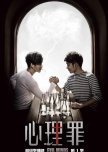
An eye for an eye will make the whole world blind.
This is the empowering, female focused historical drama that I have been waiting for. Finally in Li Changge, we get a strong, smart, independent female lead character who seeks meaning in life beyond being just an extension of the male lead and his dreams. Not that Wu Lei's Ashile Sun is anything to throw popcorn at because this man is a total keeper from his fabulous thunderbolt eyebrows all the way down to his baby toes. No, I haven't actually gotten to his baby toes, my screen appears to be ahem... stuck... in a perpetual loop around about his stunning bare chest but I am sure they past muster. Even disguised as a man, Dilraba is such a peerless goddess no male lead ever seems good enough until Wu Lei rocks up to turbocharge this smoking hot OTP into one of my all time favorite drama couples. Don't be fooled by my shameless, shallow gushing, this is so much more than just another idol drama. All of the main characters in this drama start out as young people who don't know who they want to be when they grow up. They go on an incredible journey of self actualization to discover their true values and best selves.This story begins with Li Shimin's bloody ascent to the Tang throne over the bodies of his brothers, to be the greatest Tang emperor. Li Changge, a fictional character, is his much adored niece and daughter of the deposed crown prince. Disguised as a man, she flees the capital, vowing to avenge her family and tries to marshal her father's remaining supporters to undermine her uncle. Thus Changge embarks on a long and difficult quest, making many friends including the delicious Ashile Sun along the way. She is young, naive and makes costly mistakes with irreversible consequences along the way. In the process, she discovers that the truth is never simple and there are causes far greater than hers; that an eye for an eye will make the whole world blind. Dilraba's performance as Changge is several notches above all her other works; she is not afraid to ugly cry or allow grief and rage to ooze from every pore of her being.
I picked up this drama because Wu Lei's Fei Liu is one of my all time favourite drama characters. Who would have guessed that irascible kid would have grown up to be such a sexy beast of an Ashile Sun! And Wu Lei has not lost any of his agility in delivering thrilling, heavy hitting action scenes, with his kick ass fight with She'er being one of the drama highlights. But what really is on fire is his chemistry with Dilraba; their mutual attraction does not have to be expressed in words. When Sun tells Changge "From now on, you are my slave" his entire being screams "From now on, I am your slave." It is so refreshing to have a couple that understands each other, is honest with each other (even about lying to each other) and shares the same world vision. Ashile Sun's manliness comes from the fact that he is not threatened by Changge's independence and strength, he glories in it. Together they find that forgiveness brings peace and liberation. I am also most pleased that not all the men fall in love with Changge, Mimi is more the femme fatale.
Changge's cousin and closest confidante Leyan is inadvertently thrown on a similar journey. They are polar opposites by nature and deal with challenging situations in completely different ways but both show immense courage and fortitude. Leyan is the character that shows the most growth in this drama and even though usually weepy characters give me rashes, I was not allergic to Zhao Lusi's empathetic portrayal. Fair to say, the princess and the icicle is very cliche but Liu Yuning and Lusi really capture what made it such a popular trope to begin with. Sadly they must have cut those scenes where the uptight Haodu thanks Wei Shuyu for buying him looser underwear with tears in his eyes because poor Wei Shuyu never gets any love despite how he redeems himself later on.
As much as I find this drama's character development addicting, it must be said that the plot is flimsy and requires heavy suspension of disbelief. This is partly because the plot development is constrained by historical facts. While it is very cool to journey with our characters to all the historical hot spots and watch them interact with great historical figures while history plays out, the plot itself doesn't amount to much more than that. Changge's mother's story is tragic but anti-climatic as far as mysteries go and that is the problem, the drama doesn't really have a climax. The entire last arc is not only implausible, the main antagonist was mis-cast and their acting was so appalling I really cringed through many moments of the final few episodes. As for the ending, I found it most fitting. Weddings are not the same without family, permission was asked and received and beautiful vows were exchanged. We don't need more than that.
Broadly speaking, men are followers of women in this drama making it is the ultimate female fantasy fiction that on sheer addictiveness and enjoyment factor alone merits a 10/10. But objectively speaking it also has some flaws that make an overall 8.5/10.0 more fair.
Esta resenha foi útil para você?

How to suffer successfully.
This is a truly epic fantasy xianxia romance spanning three realms that is heavily imbued with characters, cosmic rules and hierarchies, black and white magic and other elements from Chinese mythology and legend. Even though many of the themes are familiar, they are brilliantly woven into a riveting and memorable fantasy fairy-tale of how all beings - deities, demons and humans are capable of good and evil; no one is immune from love and hate and all the emotions in between. We are all different and yet still the same.After an devastating war, both the demon lord and god of war disappear and peace returns to the realms. A thousand years later, Chu Xuanji is born into the Chaoyang Sect; one of the righteous cultivating sects. At an elite martial arts tournament, she meets Yu Sifeng, the rising star and heir apparent of the mysterious Lize Palace. A strong bond of friendship is formed between the younger generation that leads them on many adventures as they pledge to help Xuanji recover shards of a magical artifact that can restore her six senses. In doing so, they set in motion a chain of events that can lead to the return of both the god of war and the demon lord and once again bring chaos to the realms. They also uncover secrets of their past incarnations and conspiracies that follow them to the present.
Where this xianxia stands out from the other huge xianxia hits of past years is that there is a very well written external plot that is not just there to facilitate the love story. Both the internal and external plot are very well woven together and are mostly evenly paced so that both plot lines converge into a very satisfying and climatic ending. In fact, the external plot is much more intriguing and balanced than the love story so I urge you to resist spoilers and just enjoy the gradual reveal of the backstory and the way it impacts many of the main characters. Although this director still cannot seem to restrain his excessive love of angst, at least in this drama the internal plot did not manage to destroy the external plot as it did in Under the Power. Indeed I personally enjoyed the external plot and colorful surrounding characters much more than the love story notwithstanding the sparkle between the leads.
As for the love story, well it has all the hallmarks of a xianxia hit - it is an extreme and obsessive love story that transcends many lifetimes and thousands of years and is undaunted in the face of challenges by more powerful beings from the three realms. Phew! Exhausting! The chemistry between the OTP is undeniably both sizzling and moving. It does not hurt at all that both actors smooch with an enthusiasm rarely seen in these kinds of shows. But the way the relationship is written is too unbalanced with Sifeng taking way too many hits for Xuanji. Most of the angst takes place in episodes ~40s+ which is late in the game and after the couple already goes through many experiences that should cement their mutual trust. So for Xuanji to be so easily swayed and manipulated makes her character regress and seem just not smart (as opposed to heartless). To deal with her so shabbily just so that Sifeng (who had already gone through so much), can spit blood a few more times is unnecessary and excessive. Within the most angsty arc, the drama indulges in flashbacks and digresses into boring one dimensional characters (e.g. Yanran) with little plot advancement. Everything comes together again in the final 6 episodes that culminates in one of the most engaging and strongest finishes I have seen in a long time. It would have been much better had they explored some of the threads in the last 6 episodes earlier and in greater depth.
As the backstory is revealed, it is evident that Xuanji is an old soul that experienced a lot of trauma that still echoes from her past incarnations and restrains her emotional development. This doesn't really come out until the end because while the main cast is really quite exceptional, Yuan Bingyan is the weak link. She did an amazing job as the young and artless Xuanji and as Xuanji in love with Sifeng but was not able to mature the character or convey some of the rage, torment from her past incarnations that haunts her character nor can she fully convey the inner conflict Xuanji experiences when forced into heart wrenching choices. This becomes most apparent at the end when stacked up against the more nuanced and compelling portrayals by Cheng Yi, Li Xinze and of course Liu Xueyi as the drama draws to an emotionally epic climax at the end.
I know Cheng Yi is by far the fan favorite and is in a completely different league in terms of his acting skills and his unforgettable portrayal of Sifeng's indomitable love and the unthinkable suffering he goes through for Xuanji. This character and this actor is a true example of how to suffer successfully, spitting blood so painfully beautifully time after time that it never fails to fan the flames of rabid fandom to new heights. While he is a truly amazing actor, I think it is actually Liu Xueyi's Haochen that is the anchor of the entire production. I know this is an unpopular and uncommon view but the truth is this drama begins and ends with this character. He must be one of the most manipulative, duplicitous, hypocritical and universally hated villains out there that I still can't help feeling pity for. Liu Xueyi's acting is truly phenomenal from his portrayal of an arrogant high deity who can't even see that he has fallen in love to his conscious acknowledgement that he has strayed from the right path but keeps on going nonetheless. The complexity of his emotions, the suppressed fury when he is thwarted and the inner conflicts he experiences is effortlessly and subtly conveyed with the twitch of a facial muscle, a flicker of an eyelid or a tiny tightening of the lips. In his own way, he suffers as much as Sifeng but obviously not as successfully - probably because he swallows and bottles up all that venom and suffering instead of spitting it right out like our Sifeng. I will leave you with one final thought - love him or hate him, we must thank Haochen. Because if he did the right thing to begin with, there would be no love story.
While for me this falls short of a masterpiece, there is so much more to it than a smoking hot love story and it is so rare to get such a good villain that is complemented by such an outstanding cast. The production value is very high and they did a fabulous job with the CGI. When I finished watching it, I felt like it was a 9.0 but unfortunately a year later, I was never even tempted to re-watch any part of it so I downgraded this to an 8.5/10.0.
Esta resenha foi útil para você?

To be or not to be.
This is a short, gripping and dark crime drama that revolves around a grisly series of murders that are mysteriously linked to Aspergic forensic analyst Fang Yiren's estranged teenage daughter. In a desperate bid to find her, he teams up with Xu Haiyin, a resourceful but rather unscrupulous and ambitious young journalist to unravel the cases. They are an odd but effective team as his meticulous forensic work reveals the how while her intuition and ability to understand and manipulate people uncovers the why.Joseph Chang's portrayal of Asperger's alone makes this drama worth watching. I would tear up at his portrayal of Yiren's frustration and inexpressible pain at his inability to emote and connect with people. Far from being oblivious (which would actually be merciful) Fang Yiren is well aware of this handicap that devastates his family and alienates his colleagues but yet helpless to do anything about it. Although I didn't like Tiffany Hsu's Haiyin in the beginning, I think her depiction of how Haiyin schemed to manipulate Yiren initially and ultimately came to understand and empathize with him was nuanced and layered. The essence of their chemistry is in the very lack of chemistry between them. The acting is so brilliant it pulls you into rooting for an unrelatable character and a dislikable one (initially). This is an almost unnecessarily dark drama; literally every character is dysfunctional, has family problems and/or smokes like a chimney.
For me, the murder mysteries were a side show and not the main meal. The plot is overly ambitious and weaves together too many complicated themes from mental illness, various social injustices, transgender issues, terminal illness, corporate greed, vengeance and, atonement in addition to the ultimate and super heavy question - "to be or not to be". While the first few cases were clearly linked, the intertwining of subsequent cases and relationships became more tenuous and were arguably unnecessary as Yiren's daughter was implicated in the very first case. The ultimate reveal was a surprise mainly because both motive and means were unconvincing and the acting by the main antagonist was very weak in sharp contrast with impeccable performances by the rest of the cast. It is a pity because what is missing is a deeper exploration of the father daughter relationship, something I suspect this production could have pulled off compellingly.
The production values are very high; it revels in impressively shocking and gruesome crime scene detail and unflinchingly exposes the mundane and exhausting clutter of ordinary lives. One of the things I really enjoyed about the drama is the proliferation of several dialects from the very expressive cussing unique to Taiwanese Hokkien to of course Mandarin and even Cantonese. But for all the high production values and effort, the last episode was really the weakest and the ending had an unfinished feeling. For some reason, this reminds me of Netflix's controversial but higher impact 13 Reasons Why, which is a much more focused and terrifying exploration of a few hard core subjects rather than a scratch on the surface tour of too many that is this drama. Nonetheless, the acting is superb and the story will put you in a thoughtful mood for some time.
Esta resenha foi útil para você?

Wuxia at its best!!!
This is one I had heard about years ago but somehow never got around to. So thrilled to have changed that. This is what a good, old fashioned Wuxia movie is all about in terms of honest to goodness kick ass action. None of that flying on roof top, slow motion improbable and technology assisted acrobatics that we are routinely served up with these days. Nothing but extremely well choreographed, intensive, nail bitingly lethal swordplay up close and personal. Wow - they really don't make it like this anymore.The plot isn't complicated - it is about how three highly skilled Imperial Assassins get caught up in a gripping yet relatively straightforward political conspiracy that puts them in mortal danger. They are a bit of a Chinese Three Musketeers with a dark side as they risk their lives for a pittance and are unable to fulfill their deepest personal desires. They are not your traditional virtuous wuxia heroes but they live by their own moral code. Shen Lian (Chang Chen) is the most deadly and most morally ambiguous of the three. Chang Chen pulls off this complex role exceptionally well, subtly conveying deep and varied emotions underneath an intense, brooding and taciturn demeanour. Zhou Yi Wei also brilliantly pulls off another grey character. In fact, many of the cast have delivered wonderful performances in key roles in many recent hit dramas. The only exception is Ethan Li's rather unmemorable performance as the more care free youngest brother Jin Yi Chuan. This actor has since regressed and gone on to weigh down a few otherwise very strong dramas for me. (Why does he still get work?). I also was under impressed by the romance element of the story - this role was not well written and not well acted. That made Shen Lian's infatuation with her not relate-able and one reason I haven't rated this more highly. That said, this is not really a romance and I thoroughly enjoyed this so definitely if like me you never got round to this, now is the time.
Esta resenha foi útil para você?

A crying shame.
The Story of Pearl Girl is the story of an intrepid pearl diver's harrowing journey from the despair of a slave farm to the heights of the prosperous Yangzhou jewelry guild. Aided by an erudite nobleman Zhang Jinran and a ruthless and calculating merchant Yan Zijing, Duanwu escapes from the exploitative clutches of the Cui clan. She throws her lot with Yan Zijing, choosing to make her own way in the world as a merchant galley serf over the more certain future of a nobleman's harem. After multiple betrayals and double crosses in the dog-eat-dog culture aboard Zijing's ship, she emerges clear eyed and better equipped to survive a ruthless, avaricious business world. She learns that underneath his merciless facade, Zijing is saving her by teaching her to save herself; that they have a shared past that she has barely scratched the surface of understanding.Set in a cruel world fraught with treachery, avarice and oppression that belies the ostentatious luxury of the jewelry trade, the narrative is laden with an air of heaviness from start to finish. It is a character story about how one resilient woman fights her way to the top of the jewelry business during feudal China. The characters are well designed with Duanwu and Cui Shijiu as two women who have to fight for their place in a man's world; one who starts with nothing and the other with everything, to lose. Likewise the cynical and realistic Yan Zijing went to the school-of-hard-knocks while the righteous and idealistic Zhang Yiran clearly had an ivory tower education. Both Yan Zijing and Cui Shijiu are consumed by revenge and on opposite sides of a blood feud not of their own making but one's cause is just while the other's is not. I enjoyed watching how these characters, with at times common and at other times with opposing world views interact and react to the situations they are thrown into. Plot wise, the logic holes are evident from the start but for character driven stories, I am very forgiving for as long as the characters stay largely consistent and relatable. But once the characters start to unravel, the issues with the plot are amplified and the entire narrative becomes a mess.
I genuinely enjoyed and was engaged by the first arc of this drama. It is both fascinating and difficult to watch the stunning backdrop of the swashbuckling high seas and the exotic and dangerous Silk Road marred by the unmitigated oppression and cruelty of the ancient world, especially towards women and children. Zhao Lusi's Duanwu is spirited, tenacious and undaunted as she fails again and again until she succeeds. I could understand why Yan Zijing resonated better with her but could also see that she lacked the maturity to appreciate how Zhang Yiran's wisdom and knowledge of the law would aid her later on. These three main characters richly complement each other in their strengths and flaws to make a formidable team when they work together. I didn't mind the romance but I didn't need it and it went a bit abruptly from red flag master-servant to lovers. Nonetheless I was looking forward to it growing and had hoped to see them right past wrongs together. I did not expect it to take a wrong turn down the path of the worst noble idiot trope in recent memory, nor for it to last pretty much until the end of the drama. That is when The Story of Pearl Girl, turns into yet another period drama that starts strong and then inexplicably nosedives at the mid-point and never manages to recover.
After the convoy arc, a traumatized Duanwu re-emerges as Su Muzhe, a detached, gently sad and bland character who Disney princess cries almost every other episode. Lusi's vapid and weepy interpretation of the role lost me as much as her Duanwu engaged me. Duanwu would have gotten angry and demanded an explanation from Zijing or plotted revenge. I was baffled by the Su Muzhe who manages to coldly co-exists with him in the same city, moves on and focuses on business, vowing to live a good life nonetheless. This is so out of character it is almost impossible to reconcile Su Muzhe with Duanwu. I rooted for the feisty Duanwu of the first half who dares to love and dares to hate. The passive aggressive Su Muzhe who only dares to cry turns what could have been a terrific story into a crying shame. The narrative meanders into maudlin sub-plots about boring and poorly acted tragic side characters. Gratuitous crying scenes have diminishing impact, no matter how good the actor is at them. Long before the drama ended, I was bored by Su Muzhe's endless pity parties and stopped caring for her. Su Muzhe is not the kind of role that plays to Lusi's innate strengths and charisma. I hope she avoids taking on such characterisations in the future.
The other narrative mistake was to separate the three anchor characters at the same time so many of the early supporting roles are transitioned into new ones, forcing the audience reinvest in new characters all over again. Yue Yunxiu is a boring, flighty character that has no chemistry with Su Muzhe and fails to shore her up in the same way Kang Ju lifts up Yan Zjijing. The entire business partnership between the women lacks flair and pizazz; I can't imagine any joy in shopping for jewelry at an establishment run by such a dolorous pair. The narrative makes a lame attempt at comedy too late in the game and it is largely left to actors that lack Lusi's fantastic comedic timing. Even when the three friends join hands again, their dynamic is not the same and Duanwu never reemerges.
As for the romance, it stagnates even after they reunite and never blossoms into a full blown relationship. I would have liked to see them seize the day and live in the moment in a way that gives us something really worth crying over. Instead all we do is watch them mourn what could have been. It is incredibly unfair to Muzhe because Zijing refuses to move forward but yet can't set her free either. I wish they both chose differently but since they did not, the way their romance ends is fitting. I respected Zijing's choices especially in the end but I think Su Muzhe's victories were all hollow and I hoped she would find Duanwu again within herself but she never does. I enjoyed how Liu Yuning portrayed Yan Zijing's darkness and complexity but after the best first arc, he is too quickly whitewashed and sidelined. Even though the final arc is all about his justice, he doesn't get to do that much as the hidden villain is too obvious to the audience early on and most of the antagonists are so dumb they pretty much outed themselves.
Zhang Yiran is the best of friends and that rare character that does the right thing even when its the wrong thing for himself. While Duanwu didn't fit in to his world, he may eventually have been able to console Su Muzhe and I wish they had left that door open just a crack. As for Cui Shijiu, this character caught and held my interest from start to finish as a result of Xie Keyin's bold screen presence and her husky and earthy vocals. Her character is flawed, not that smart or especially well written but Xie Keyin embraced her flaws in such a relatable way and conveyed the role so compellingly that I cared about her and did not drop this drama because I wanted to know how her story ends. She and Zijing are both characters that choose revenge over love but only one of them lives to regret it.
The biggest issue with the storytelling is that it tries to incorporate too many themes and archaic ideas of what an independent and empowered woman is supposed to be. The writers bend the plot and characters in ways that don't make sense or is out of character in order to force certain themes and outcomes. This is not a good way to tell a story. Both Duanwu and Zijing's characters are thrown under the bus just to prove that a woman can make it on her own in business during feudal China. We watch allegedly smart villains kill off characters with no motive other than for dramatic impact and shock value. But what makes me really mad is that it is another scratch on the surface empowerment story written by misogynists with a thinly veiled and insidious message about the fate of women who dare to try to make it in a man's world. A true empowered woman would seize second chances and live well in the true and full sense and meaning of the term rather than to wander aimlessly as a shadow of their former selves.
This was a heavy journey from start to finish that does not end in satisfactory way and the ending contains some really questionable messages. There is no payoff for all the suffering, no one gets a great ending and promises to live well were not kept. In the name of both Madame Eight and Shrimpy, I dare not rate this more than 7/10. It is not a drama I recommend unless you are a die hard fan of either of the lead actors and are able to enjoy anything they are in.
Esta resenha foi útil para você?

Only the good die young.
The second instalment of Sima Yi's story opens with his uncomfortable return to the capital to serve under the most unworthy Cao Rui, the ingrate he saved as a boy and put on the throne. Cao Rui grew up to be a monster and what he did to Empress Gao was a great historical injustice. The symbolism of Cao Rui being carried by Sima Yi is strong, suggesting their dynasty was held up by Sima Yi and most of this drama makes the case that the treacherous Cao family was unworthy and deserved to be toppled. I usually like Liu Han but did not enjoy how he portrayed Cao Rui. I was unmoved by his childhood trauma over being the product of an indifferent father who executed his mother and just drummed my fingers impatiently through his theatrics and unseemly antics with his vile eunuch. I did appreciate some aspects of his acting - he seemed cunning and slightly unhinged in the most dangerous of ways that made me feel fear for the Sima family.The highlight of the second season is without doubt Sima Yi's rivalry with Zhuge Liang, the greatest strategist of Three Kingdoms lore. It was heart wrenching to see two soulmates with such profound mutual understanding, respect and admiration locked in a ferocious life and death battle. Both bound by oathes they swore to dead emperors, one is handicapped by a strong master and the other by a weak one. It was just war brutal and simple; there was no right, or wrong, or good or evil; just opposite sides. The writer does a commendable job making the sophisticated military strategies exciting and accessible to viewers. This version of Zhuge Liang's famous Empty City Ruse/Kōngchéngjì/ 空城计 suggests Sima Yi was not really fooled, he just had a very strong sense of self preservation. Their encounters capture the essence of a resting dragon/wò lóng/ 卧龙 reclaiming the central plains from a hidden tiger 冢虎 (zhǒng hǔ), a rising talent. Alas, time was not on Zhuge Liang's side or history may have been different. Nonetheless, his trick from the grave on Wuzhang Plains left no doubt in peoples minds that " a dead Zhuge scares away a living Zhongda". It is remarkable that till this day, Zhuge Liang is the most revered strategist of Three Kingdoms lore and it remains almost a footnote in history that Sima Yi actually "won" Three Kingdoms. This arc broke my heart; I couldn't bear how Sima Yi exhausted Zhuge Liang and how unworthy both their emperors were.
The narrative inevitably peaks at the Zhuge Liang arc; their battles were the pinnacle of Sima Yi's accomplishments. After that, the drama really dragged. It wasn't necessary to dive into so much detail into the Cao Shuang arc. We really didn't need another long and boring example of what imbeciles Cao Cao's descendants turned out to be. The arc was incredibly predictable with repetitive ploys to try to indict the much older Sima Yi only to see him deftly turn the tables on his enemies yet again. The only highlight of that arc was the wild speculation around Sima Zhao's role in the death of Sima Shi's wife's death but that sub-plot didn't get wrapped up in a satisfying way. The only thing that kept me watching was Tan Jianci and Xiao Shunyao's excellent portrayals of the Sima brothers. I also found it quite cool that they cast an actress to play the treacherous and effeminate He Yan.
After the Zhuge Liang arc, it struck me that even though I was fascinated by Sima Yi and often empathised with him, I just didn't liked him. I was not surprised that he became darker in his later years; this is foreshadowed from the beginning and was an insidious process throughout. The second half of this drama seemed to go on for an eternity. That ruthless, cowardly, cunning, wicked old tortoise Sima Yi just would not die! It offends my sense of justice that he lived to such a ripe old age. I guess it must be true that only the good die young.
This drama had at least 10-12 episodes too many. We really didn't need such a detailed the blow by blow of Sima Yi's much less interesting later years. Up to the Zhuge Liang arc, I rate this 8.0/8.5 but after that it's a 6.0/7.0 so overall this a 7.5 for me.
Esta resenha foi útil para você?

Are there limits to an emperor's power or simply limits to an emperor's love?
A black cat slithers sinisterly through the households of Changán's elite seeking out its favorite meal of fish eyeballs; a series of eerie inexplicable events in its wake. When it dares torment Emperor Xuanzong, palace official and aspiring poet Bai Letian (Bai Juyi) and visiting Japanese monk Kukai pair up to track down and exorcise the demon cat. These two historical figures must uncover the cause of the cat's resentment in this wildly speculative account of the inspiration behind the most renown Tang poem in history 長恨歌/Chang Hen Ge/The Song of Everlasting Regret or Sorrow.Yang Yuhuan (Yang Guifei or Precious Consort Yang) is a cultural legend that stirred the imaginations of artists, poets and writers for centuries. One of the Four Beauties of Ancient China, she was the femme fatale that distracted a great Tang emperor from affairs of state and sent the empire into decline. In this opulent blockbuster, Chen Kaige conjures the fantastical sensuous decadence of the Tang empire at its zenith and the subtle decay of its decline. While Sandrine Pinna hardly leaps to mind,, she passes muster as this famous, captivating beauty that toppled an empire. I cannot rave enough about how masterfully this production evokes the famous poem, with its vivid, erotic imagery of an incomparable beauty, an intoxicating and toxic love story and the haunting intensity of eternal regret and sorrow. Are there limits to an emperor's power or simply limits to an emperor's love?
Where the movie falters is in the narration. Both the role of Bai Letian and that of Kukai are miscast and not well written. The movie dwells too much on Kukai's backstory, which is not interesting and peripheral to the plot. There is zero chemistry between Huang Xuan and Sometani Shota and neither actor conveys why their character is compelled to solve the mystery of this enigmatic and very spooky cat. In fact it is Liu Haoran and to a lesser extent Ou Hao's White Crane and Red Crane that resonate and absolutely steal the show. Liu Haoran's portrayal of youthful infatuation, betrayal, the terrible burden of holding a lasting grudge and the release of letting go leaves the strongest impression among all the performances. If the two lead roles were better written and articulated, I would easily rate this better than 9,0 instead of 8.5. Nonetheless this is one of the best ancient fantasy thriller mysteries I have watched in a long time.
Esta resenha foi útil para você?

Homecoming.
Billed as a suspense drama, 2021's highly anticipated Mist Theatre debut is really a family drama about how guilt and regret fractures a family after their youngest, best loved child Xuan Zhen is murdered nineteen years ago. Xuan Liang, who neglected to pick up his sister that fatal day is a stifling, over protective and paranoid father who is slowly but surely alienating his eighteen year old daughter Nianmei, who bears an uncanny resemblance to her long dead aunt. Another seemingly related murder finally presents a potential break in this cold case for long suffering detective Yuan Fei, whose wife Xuan Min also cannot let go of her sister's murder. The homecoming of Xuan Zhu, Xuan Zhen's fraternal twin sister is the catalyst that finally connects disparate threads between the past and present.The best part of this drama is the exceptional veteran cast who deliver performances that exceed the quality of the dialogue and the logic of the storytelling. Their compelling acting reinforces how they, the survivors are the true victims of this crime as they are each tormented by the knowledge that Xuan Zhen would still be alive if only they had done something differently. The problem is that amongst such nuanced and immersive portrayals, the young actress playing both Xuan Zhen and Nianmei is completely out-classed and her portrayal by comparison seems a lot less compelling than it really is. It does not help that neither character is written to be that empathetic.
Where this drama fails spectacularly is on the suspense thriller aspects. Despite decent camera work and a very dark and mysterious ambience, there is no sense of imminent danger or looming evil. As always Duan Yihong is so enjoyable to watch and between his Yuan Fei and his rookie sidekick Liu Xinli, the investigative aspects are logical and well presented. However, all of the credible suspects are eliminated very early and by the 6th episode, the who and the why is quite obvious. To meander through another 6 episodes of digressions into family drama to get to the how takes too long; what little suspense is built up fizzles out. The antagonist is also not interesting or sympathetic and their motive is not well fleshed out. It ends on a strong note as we are made to see and feel how important closure is for the Xuan family.
Even though this is a pretty forgettable suspense thriller, it is difficult to rate it too badly considering its strength as a family drama and the strong performances of the all-star cast. I give it a 7.0 overall as a decent watch if you need to pass time.
Esta resenha foi útil para você?

The Devil Inside.
This is an excellent psychological thriller that can give any of the recent hits in the crime/thriller genre a run for their money. This drama grippingly explores criminal profilers - those who get into the minds of monsters - those who gaze long into an abyss the abyss also gazes into you. It is a dark story about how we all struggle with our inner demons and how the devil inside can be unleashed and insidiously take over. It is another excellent thriller with an unreliable narrator that sneaks up upon you.Fang Mu is a graduate student in criminal psychology who consults with the local police department to solve difficult and gruesome serial cases. He is considered a gifted profiler who is able to build an identifiable profile of the murderer from seemingly random and opaque clues. I am quite surprised at how some graphic and gruesome details of the rape/murder cases made it through the Chinese censors. That said, the introductory or peripheral cases fail to convincingly establish Fang Mu's credentials as some kind of profiling wunderkind although the shock or gore value is quite high. The two "real" cases however are meticulously mapped out and articulated.
After a traumatic case, Fang Mu struggles to matriculate and his police collaborators exhort his professor, another gifted profiler salvage their protégé by helping him battle his inner demons and complete his thesis. Another series of baffling murders compels Fang Mu to work together with the police department again. This awakens memories of the shattering case from three years ago that destroyed his confidence and left him a shadow of his former self. The story brilliantly weaves the destruction and subsequent salvation of Fang Mu's character into the two defining cases, one in the past and one in the present. Unlike some of the overrated the 2020 vintage that morph into character dramas (Horizon Tower, The Long Night), Fang Mu's character evolution an integral part of the plot and is not a digression from the plot.
There are enough clues throughout that it is possible (but not easy) to partly solve both of the main cases before the big reveals. At the very least, a very shadowy outline of the truth is visible in a way that made me want to keep watching; to find out if my suspicions were correct. This achieves that perfect balance between the element of surprise and anticipation or validation of the viewer's working thesis and I can't be more impressed. The acting and chemistry between the cast is excellent with the villains in particular being very subtle but still planting the smallest seed of suspicion. This really hit my mystery, psychological thriller, dark gore sweet spot. At the same time, in so many ways it is also a very human, very sad story. You will feel a ton of empathy for many characters and how the vagaries of fate and chance conspire to steal their dreams without completely killing them. Chen Xi and Fang Mu's story broke my heart - even though I was on to them from the second episode, I never wanted more badly to be wrong.
While there are some flaws and maybe some holes, this is an excellent watch - I rate it 8.5. It is very under appreciated but dark and complex.
If you are going to watch it on iQiyi be warned that the last two episodes are incomplete. Episode 23 seems edited to end the show with some of the most important threads left open. And Episode 24 is missing. iQiyi has ignored my many messages to complete the season so like me, you will have to watch the last two episodes somewhere else (Dramacool).
Esta resenha foi útil para você?

A River Runs Through It
The illusory peace of a sleepy riverside town is shattered by a murder that recalls a twenty year old cold case. Shan Feng, who was just a boy then, partially witnessed the murder of his crush Xiao Baige (little white dove) returns to his hometown to investigate these possibly connected cases. His inquiries reopens old wounds and reveals the festering impact the lack of closure Xiao Baige's senseless murder has on her friends, family and the town.The premise and darkly intriguing ambience and suspenseful tension of this drama really drew me in at the beginning. And I can't fault the execution from the pacing; to the top notch acting; to how the disparate threads gradually converge into the river that runs through these quietly spooky remote towns. Where the drama falls down is the story is excessively melodramatic and the motivators of many of the key protagonists and antagonists rings hollow. Many characters in this drama are driven towards doing terrible, terrible things but their actions and trauma they suffer seems out of proportion to the events that catalize these extreme reactions. Too many of the characters are deeply dysfunctional and are driven towards tragic outcomes simply for the sake of inflicting pain on the surrounding characters.
The strongest point of the story is how the main villain hides in plain sight and is revealed gradually as everything comes together and how the story illustrates that in these small rural towns there are really only two degrees of separation between people. But just like I felt the first victim was just not interesting enough to have inspired such profound reactions from so many people, the triggers for the villain's derangement are unconvincing. The role however, is brilliantly acted and the character comes across as both lugubrious and menacing.
Bottom line this looks like a crime thriller, it tries very hard to be one and it almost feels like one but at its core, something rings hollow. It is not terrible, a lot of effort obviously went into it and it is a decent quick watch for some cheap thrills. I give it a 6.5.
Esta resenha foi útil para você?

My name is Nalan Yue, you killed my father, prepare to lose your daughter!
Once upon a dark and scary time, jianghu was controlled by Rong Jingfeng, master of the sinister Dragon Roar city. His favorite daughter Rong Hua (Zhang Huiwen) is rescued by Nalan Yue (Ren Jialun) and they fall in love. They uncover the secrets of JIngfeng's dark power over the sects and a continuing blood fued between their families. Evil jianghu dictator, revenge plot, Romeo and Juliet romance... yups, those are pretty much the most overused wuxia tropes out there. And yet this drama takes a very different and often enjoyable approach to these common cliches which is what kept me watching. I won't lie however, the editing is terrible and while there are some really fun parts, the whole thing does not come together that well.The story itself is a simple one that isn't that difficult to follow despite the annoying, often discontinuous editing. The action scenes are exciting and generally well done and is one of the drama's highlights. While it is at times hit or miss, they make a decent attempt at dark comedy, which I love. Unfortunately, as much as I respect Ren Jialun's attempt at taking on more versatile roles, his portrayal of Nalan Yue is not memorable. He takes the character's transition from a lighthearted and chatty young man to a darker, more mature and more burdened character well enough but fails to convey who Nalan Yue is at the core. His comedic timing is just not good and trying to grin while he is talking at high speed is a fatal error that must be as uncomfortable as it looks. That said, I respect and support actors who take on different roles and try to test their limits so I am pleased he didn't try to pull another Lu Yi here. I was wary of Zhang Huiwen because I really dislike her performance in NIF2, one of my all-time favorite dramas. But while not perfect, I definitely saw improvement in her acting and she is surprisingly good at dark comedy, which requires much more subtlety than silly rom-com humor. Her best moments in this show is when she vindictively has a beloved tree chopped down and her hilarious initial interactions with Bai Su.
Where this drama falls down is the two main romances were not properly developed. Both lead couples fell in love so quickly I had to rewind to make sure I didn't miss their courtship. As such, there is no buy in as to how as a couple, they would overcome the dreaded Romeo and Juliet trope - one of the hardest tropes to convincingly pull off a happily ever after with. And Ren Jialun's wife (just kidding, don't start rumors) must run the censorship bureau because there is no lip locking and not much in terms of eyeballing each other either. They just jump right into a mature, trusting and intelligent relationship with limited misunderstandings and only mild noble idiocy at the end. But it is still great to see the romance avoid a bunch of cliches and it is particularly refreshing the way the Xueman triangle is so smartly resolved. I also love how both brothers fall for such different sisters and oddly enough, it is quite clear why Rong Su and Liu Yizhou "click" but less so Rong Hua and Nalan Yue. Despite a lot of screen time together, Rong Hua and Nalan Yue have zero sizzling, squeal worthy moments together. For me, Xuanye and Liuli's romance is the most convincing and endearing one.
There are many very cool and properly dimensioned characters in this show. Even dark characters like Mohuan and Jingfeng have shades of grey and likable sides, no one is just simply black or white. They are all capable of love and doing good but tragically chose to do evil instead. Outside of Meiying, who to me is the most despicable character, I am moved to pity for the vain, lonely and ultimately futile quest for power and dominance that drove our main villains. I also like how the drama explores revenge not as an eye for an eye and is willing to free the next generation from the past generations greivances. I think if this drama went went down the route of "My name is Nalan Yue, you killed my father, prepare to die!", I would certainly have dropped it early on. It is differentiated in new ideas and interesting approaches to cliche tropes and a decent attempt at dark humor. It is a shame it doesn't hang together as well as it should have but I still enjoyed it. To me this feels like a 7.5 or possibly an 8.0 for not boring me with stale ideas.
Esta resenha foi útil para você?

Heaven has no rage like love to hatred turned.
Let me come clean from the get go - this kind of drama is not my cup of tea. I watch dramas to escape, not to get embroiled in messy social themes around the aftermath of the disintegration of marriage and terminally sick children, But Left Right is written and shot by Hu Jin of The Bad Kids Fame, one of my favorite suspense dramas. I just love his visual composition style and how mercilessly his camera eye lays bare the multitude complexity of human emotions. And in that aspect, Left Right hits the ball out of the park and that is without doubt this drama's best feature.The drama opens well with Fang Yinuo and Xiao Lu compatibly anticipating their first child with a mixture of happiness and small trepidation. They companionably joke about giving up spicy noodles, which Yinuo especially loves, for the duration of "their" pregnancy. Except Xiao Lu already wolfed down a bowl of spicy noodles before going home. Such a simple scene so brilliantly illustrates the manifold cracks in their relationship. She is overly controlling and demands that they suffer together. He is passive aggressive and rather than confront her, he goes around her. This dynamic is prevalent throughout their interactions. The dissolution of their marriage is inevitable and they both move on to become better partners in their next relationships. The drama peaks at that point and once the child gets sick, the narrative succumbs to melodramatic and increasingly unrealistic subplots with improbable twists and digresses into uninteresting and dislikable side characters. This would have been a much better drama with half the episodes. Towards the end all the excessive gouxue狗血(dog's blood) turned into goupi 狗屁(crap) to the point that I even stopped caring about the kid's fate.
This intense character drama with a melodramatic plot takes on too many heavy themes - the pressure of a newborn child, extended family conflicts, postpartum depression, the stigma of divorce, archaic child custody laws, inadequacies of the healthcare system, financial struggles, deadbeat dads and last but not least, women stripped down to their worst, meanest selves.
Ren Suxi's portrayal of Fang Yinuo is so evocative it pulls me into the scenes where I wrestle with the sweet temptation of punching her in the face. This woman is a nutcracker; there is no other way to put it. This cold fish with impossible standards is judgmental, selfish and unforgiving. She wallows in postpartum depression while enslaving her own mother and mother-in-law with her high standards and demands. But I have no sympathy when Yinuo lashes out at them because they are not likeable characters either. In fact, not likeable is the nicest way to describe practically all of the characters in this drama (besides the kid). Even though Yinuo meets her match in her new sister-in-law, I feel no sense of cosmic justice. By then my head hurt from the cacophony of high pitched, shrill and nasty bitching. Unyielding to the bitter end, Yinuo experiences very little growth and never quite owns up to her part in her failed marriage.
As for the men, beginning with Xiao Lu, they are all weak and useless characters. Xiao Lu is a people pleaser that lies to avoid conflict, which often exacerbates conflict. He enables his brother's weaknesses and his mother's vices because it is just too hard to fix them. Xiao Lu is as selfish as Yinuo in his own way and it is manifestly obvious that two such self absorbed people would never work out. They both become almost likeable when they are with other people but all too quickly it becomes obvious that Xie Tianhua and Dong Fan are so unrealistically written they'd be booted out of a Disney fairytale script. Nobody is that nice or understanding or tolerant. Tianhua in particular must be the doormat character of the century. Nie Yuan's acting in particular is clearly not on par with the rest of the main cast but I think the problem is poor character design more than anything else. Although Qin Hao's character is not as intense or as central as Ren Suxi's, I find his portrayal more believable and nuanced enough to make his Xiao Lu empathetic whereas Ren Suxi's portrayal is not empathetic to the bitter end. A small bit of humor could have humanised these characters and made them much more relatable. As for Su Jinwei and Lei Wen, their boring characterizations, uninspired portrayals and long winded filler sub-plots are the drama's weakest link.
This drama's message of atonement and redemption is drowned out by the deafening impression that heaven has no rage like love turned to hatred. In fact, just never piss off a woman. Whether she is your wife, your mother, your sister or your child, she will for sure make you suffer. Up to the point of Xiao Lu's mae culpa, the poor guy gets figuratively castrated by a vindictive, unforgiving woman that hates him to the bone even more than she loves her child. It made me so angry at Yinuo and angry at the drama for making me feel that way. Because in these matters, I am always, always biased towards the women. So how did I end up sympathizing with the men and not even caring about the child? I feel like I was tricked into watching a scorching indictment of women's worst traits. Despite this being such a technically and visually stunning and immersive production, this drama made me more angry than sad. I can only rate this 7.5/8.0
Esta resenha foi útil para você?

The hunt for a serial killer.
Who is He is an intensely gripping police procedural that narrates the hunt for a serial killer that evaded justice for decades. It draws inspiration from two well known, real life cases - the 1988 Gansu serial killer case and the 1996 Nanjing University dismemberment case. These investigations were hampered by a lack of access to modern forensic technology, especially DNA evidence. The brutality and horror of these cases instilled national shock and outrage. For those following the heinous Abby Choi case in Hong Kong, the dismemberment case invokes chilling parallels.During the hunt for a serial killer in 1988, Wei Guoping comes within a hairsbreadth of capturing him. In a close encounter, Guoping saves the intended victim Nie Xiaoyi but loses his partner. He has survivor's remorse and the case continues to cast a shadow over his existence long after it goes cold. Eight years later, he is convinced that the 1988 killer has resurfaced in the shocking Nanjing University dismemberment case.. His peers and superiors however are concerned that his rushed conclusion could steer the investigation down the wrong path. The drama dives into the inner workings of the department and how they collaborate and resolve internal conflict. It shows us that there are many ways to skin a cat and internal debate is healthy and produces a more rigorous process with defensible chain of evidence, and effective witness and suspect testimony.
This drama does a fantastic job zooming in on the procedural aspects of an investigation from the thankless, painstaking and smelly task of collecting and analyzing evidence to effective (and not so effective) methods of interviewing persons of interest. Without modern forensic technology, it is like looking for a needle in a haystack and can span decades. The show's meticulous attention to detail and commitment to vivid realism makes it stand out in the genre. The uncanny simillarity in the dumpster dive scenes to real footage from the recent Abby Choi case adds another layer of intrigue and sense of real life horror. There is an everpresent sense of urgency and suspense that is captured by highlighting the terror of the witnesses, survivors and the afflicted communities. The audience is also kept invested by dramatising the character aspects of the investigative teams and how unsolved cases can haunt key members of the investigative team.
The character writing and portrayals are among the drama's strongest aspects. Zhang Yi delivers yet another exceptional performance as a hard core detective single-mindedly focused on hunting down the 1988 killer. His Wei Guoping is a much less perfect character than An Xin (from The Knockout), which makes him more interesting and relatable. I loved how Gu Kaiyan calmly puts him in his place, asserts her authority and earns his grudging respect. The rapier-like way she breaks down and corners a suspect in interrogation is insanely awesome. Xu Fangyi steals the show with this riveting portrayal of a cooly logical and formidable female cop. The unique mixture of camaraderie, conflict and attraction between Wei Guoping, Song Zhe and Gu Kaiyan really made the team dynamics fun to watch.
Where the drama falters is in plot. This is somewhat unavoidable as the underlying cases are true crimes where major breakthroughs were only achieved with the help of DNA, which is ultimately anti-climatic. Maybe it would have been better if they went with something similar to Netflix's wildly successful serial killer docu-drama format rather than to try to dramatise it. The less interesting crime syndicate arc with the overused "forbidden" romance with a gangster's sister trope grew bigger than itself in the final third of the drama. Logic holes emerged and there were simply too many coincidences to force disparate cases to converge. The antagonists' motives in particular were contrived and in the Gansu case, deviates too markedly from the profile of the real serial killer. This may have been one of the reasons it was so harshly criticised by Chinese audiences. Because of well written protagonists and all around strong acting, I don't think this was that bad of a drama although it did not live up to its early promise. As a fan of the genre, I still enjoyed this well enough and rate it 7.5/10.0
Esta resenha foi útil para você?

At a snail's pace.
Sometimes all you need to know about a drama is in the name - this one is aptly titled because it unfolds at a snail's pace. This is about a talented young criminal profiler Xuxu's quest to gain the approval and acceptance of her boss Ji Fai; who wants to boot her out of the department for flunking the physical fitness test.The cases in this crime thriller drama are linked and have a personal connection to Ji Fai. While quite well written, the clues and conclusions are either obvious or they are not at all and unfold like a police procedural. A very slow paced police procedural. That simply doesn't work - if its gonna unfold slowly then it must be littered with enough clues that the viewer gets hooked into playing armchair detective. If its gonna be a police procedural, then its got to be fast paced and action oriented. This was the worst combination of both. I lost interest in the case after about 13 episodes but kept watching hoping (wrongly) for some romance.
It goes without saying that Wang Kai looked yummy in this drama and his acting was very good. I really enjoyed all of the fast moving action scenes he was in. But I just couldn't see the chemistry or romance. First of all, Wang Xiwen's Xuxu did not come across as a criminal profiling genius; just a rookie cop who thinks VERY SLOWLY. Watching someone think very slowly is VERY BORING. The character is also inconsistently written: someone supposedly so perceptive she can draw inferences from human nature not obvious to others but yet lacking in social skills and EQ??? Both characters wore such solemn expressions I started to hope they would just glower each other to death.
There are some good things about this drama that actually starts out quite well. The second ML and FL are quite adorable and really lift the mood and team dynamic. But it simply just wasn't enough. If you really want to watch Wang Kai, then you can consider this a 7.0 but if not, it really is a 6.5. Bottom line, if you are looking to be intrigued and thrilled, look elsewhere. If you need a sleeping aid, this is a total snooze fest.
Esta resenha foi útil para você?

The Adventures of Shanghai Holmes
This drama unabashedly sets out to create a Chinese Sherlock Holmes that is an upgrade from the original. I wish they had not done that but that changes nothing about how awesome this drama is. Set in the lavish sophisticated glitter of 1930s Shanghai, the glamorous surface visuals stand in sharp contrast to the darker and more ominous undertone of its citizens' dark side. The production borrows heavily from recent popular Sherlock Holmes movies and dramas. This is most notable with the OST which sounds uncannily like parts of the OST from both the movie and the BBC hit drama but has the audacity of being well... just better!This fun and engaging drama follows gifted police consultant Luo Fei (Bai Yu) and his sidekick rookie female detective Qin Xiaoman's crime solving adventures. They are aided by forensic doctor Ben Jieming and criminal psychologist Dr. Huo Wensi under the eagle eye of Detective Supt. Shawei. Despite the overt allusions to Sherlock Holmes, this is really a crime solving team that is a bit of Elementary in the two leads combined with a bit of CSI and a bit of Criminal Minds. Despite the requisite sharp intellect and deductive talent, Bai Yu's Luo Fei is far too sociable, too stylish, too charismatic and way too relate-able to qualify as an iconic Chinese Sherlock Holmes. His interpretation lacks a defining obsessive eccentricity and that dispassionate deductive logic that is the quintessential Sherlock Holmes.
Nonetheless, the humorous antics of the all too human Detective Luo as he falls for his gamin and plucky young sidekick are simply delightful. Xiaomin is a strong, smart and tenacious female character who can kick ass but is also not afraid on occasion to just be a girl. I really like that about her. What I like less is how condescending Luo Fei is when explaining certain deductions to Xiaomin - all that "Elementary my dear Watson" crap is such an overused and passe preamble to a "this is how it went down" walk-through in this genre. In general, all of the lead roles are colorful characters that were well written, well developed and well acted.
What impresses me most about this drama are how well written the cases are and how they come together in an overarching larger plot. I devoured the Complete Sherlock Holmes when I was twelve and have probably read every critically acclaimed detective out there since. I am not that easily wowed by just any old whodunit. These cases are intriguing, cleverly crafted, largely original with cheeky allusions to many of Holmes cases, both famous and lesser well known. They were mostly crimes of passion, where we end up feeling rather sorry for the perpetrators following the great reveal. In this sense, the cases are much more Agatha Christie than Arthur Conan Doyle.
The approximate three-episode per case format is just the right length to properly develop the backstory to each crime and the potential suspects. However, the production rushes through some key interactions, as if they don't really want the viewer to have enough time register what happened and think things through carefully. A really good whodunit lingers to the point of actually rubbing it in your face. The casting is also a bit off in the cases. For example, if there is to be a femme fatale in a case, she has to look the part. It is like saying Mrs Peacock seduced Professor Plum in the Conservatory - all you get is a big fat eye roll and yeah, right. Replace that with Miss Scarlet and then its oh yes, of course she did, that tramp! I suspect that the producers just don't understand that part of the big hook in this genre is the audience really does want to have a fair shot at more or less figuring it out. And between the rushing (every episode is really only about 30 mins) and the misleading casting, they are kind of cheating a little bit. But its not a big issue, just don't hesitate to rewind if you think you missed something.
[MILD SPOILER - PROCEED WITH CAUTION]
The way the cases converge towards the end is marvelous (and original) and builds towards a Reichenbach Falls like moment as a final homage towards Sherlock Holmes. Arthur Conan Doyle was bored with his creation and had intended to kill off Sherlock Holmes. I don't think that is the intent here - I think it this is clearly angling for a second season but even if that doesn't happen, I think the ending is excellent and can stand as it is.
Esta resenha foi útil para você?


 54
54 202
202 8
8


















